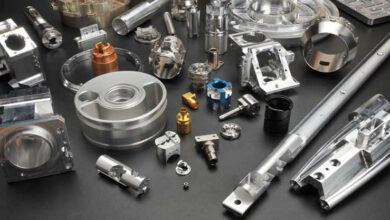Enhancing Solar Power Systems with 12V 400Ah Lithium Batteries

As the world increasingly turns to renewable energy sources, solar power systems have become a popular choice for both residential and commercial applications. One of the key components of these systems is the battery storage, which plays a crucial role in storing and delivering the energy generated by solar panels. In recent years, 12V 400Ah lithium batteries have emerged as a significant advancement in battery technology. This article explores how these batteries enhance solar power systems, their benefits, integration considerations, and the future outlook for battery storage.
Understanding 12V 400Ah Lithium Batteries
Definition and Basic Specifications
A 12V 400Ah lithium battery is a high-capacity energy storage solution designed to operate at a nominal voltage of 12 volts with a capacity of 400 ampere-hours (Ah). This means the battery can deliver 400 amps of current for one hour or, conversely, a lower current over a longer period. Lithium batteries, specifically lithium iron phosphate (LiFePO4), are known for their high energy density, long lifespan, and rapid charging capabilities.
Comparison with Traditional Lead-Acid Batteries
When compared to traditional lead-acid batteries, lithium batteries offer several distinct advantages:
- Energy Density: Lithium batteries have a higher energy density, meaning they store more energy in a smaller, lighter package. This translates to greater storage capacity and less physical space required.
- Lifespan: Lithium batteries typically last much longer than lead-acid batteries. While lead-acid batteries may last 3-5 years, lithium batteries can last up to 10 years or more, depending on usage and maintenance.
- Charging Efficiency: Lithium batteries charge faster and more efficiently than lead-acid batteries. They can often be recharged in a fraction of the time, which is crucial for maintaining optimal performance in solar power systems.
Advantages of Lithium Batteries Over Lead-Acid
Lithium batteries provide several benefits beyond those mentioned:
- Deep Discharge Capability: Lithium batteries can be discharged deeper without affecting their lifespan. In contrast, lead-acid batteries should only be discharged to about 50% of their capacity to avoid damage.
- Maintenance-Free: Lithium batteries require little to no maintenance, while lead-acid batteries need regular checks and topping off of electrolyte levels.
- Temperature Tolerance: Lithium batteries perform better across a wider range of temperatures compared to lead-acid batteries, which is advantageous in varying environmental conditions.
Benefits of Using 12V 400Ah Lithium Batteries in Solar Systems
Increased Energy Storage Capacity
The 400Ah capacity of these lithium batteries provides a substantial amount of energy storage. This means that solar power systems can store more energy during the day and have a larger reserve available for use during periods of low sunlight or at night. For example, a 400Ah battery at 12V stores 4.8 kilowatt-hours (kWh) of energy, which is significant for both residential and small commercial applications.
Extended Battery Life
One of the most notable benefits of 12V 400Ah lithium batteries is their extended lifespan. With proper care, these batteries can last up to 10 years or more. This is in stark contrast to lead-acid batteries, which often require replacement every 3-5 years. The longer lifespan of lithium batteries translates to fewer replacements and lower long-term costs.
Faster Charging Times
Lithium batteries charge much more quickly than lead-acid batteries. While a lead-acid battery might take several hours to reach a full charge, a lithium battery can often be fully charged in 1-2 hours. This faster charging time is particularly beneficial in solar power systems, where maximizing the use of available solar energy is crucial.
Improved Performance in Various Conditions
Lithium batteries perform well in a range of environmental conditions. They can operate efficiently in both high and low temperatures, making them suitable for diverse geographical locations. Additionally, their resistance to deep discharges and high charge and discharge cycles ensures consistent performance over time.
Integrating 12V 400Ah Lithium Batteries into Solar Power Systems
System Compatibility
When integrating 12V 400Ah lithium batteries into existing solar power systems, compatibility is a key consideration. It is essential to ensure that the battery matches the voltage and capacity requirements of the system. Additionally, the charge controller and inverter must be compatible with lithium batteries. Many modern charge controllers are designed to work with lithium batteries, but it’s important to verify this before installation.
Installation Guidelines
Proper installation is crucial for optimal performance and safety. The installation process generally involves:
- Mounting the Battery: Choose a suitable location that is dry, well-ventilated, and protected from extreme temperatures.
- Connecting the Battery: Connect the battery terminals to the solar system’s charge controller and inverter, following the manufacturer’s instructions for polarity and connection methods.
- Testing: Once installed, test the system to ensure that the battery is properly integrated and functioning as expected.
Maintenance and Monitoring
Lithium batteries require minimal maintenance compared to lead-acid batteries. However, monitoring is still important. Many lithium batteries come with built-in Battery Management Systems (BMS) that provide real-time data on battery health, charge levels, and performance. Regularly checking these metrics can help detect potential issues early and ensure the battery operates efficiently.
Cost Considerations and Return on Investment
Initial Investment
While the initial cost of 12V 400Ah lithium batteries can be higher than lead-acid batteries, the investment is often justified by their long-term benefits. The higher upfront cost is offset by the batteries’ extended lifespan, reduced maintenance needs, and improved performance.
Long-Term Savings
The long lifespan of lithium batteries means fewer replacements over time, translating to significant savings. Additionally, their efficiency and faster charging reduce energy costs, making them a cost-effective solution in the long run.
Efficiency Gains
The improved performance of lithium batteries enhances overall system efficiency. Better energy storage and faster charging lead to more effective use of solar energy, which can result in lower energy bills and a quicker return on investment.
Case Studies and Real-World Applications
Examples of Successful Installations
Several case studies highlight the successful integration of 12V 400Ah lithium batteries in solar power systems. For instance, a residential solar system in Arizona achieved substantial energy savings and performance improvements after upgrading to lithium batteries. Similarly, a commercial facility in California reported enhanced reliability and reduced maintenance costs.
User Experiences and Testimonials
Users of 12V 400Ah lithium batteries frequently praise their reliability and efficiency. Testimonials often highlight the significant improvements in energy storage and the ease of maintenance compared to traditional battery types.
Comparative Performance Data
Performance data from various installations show that lithium batteries consistently outperform lead-acid batteries in terms of lifespan, charging times, and energy efficiency. These comparative metrics reinforce the advantages of adopting lithium technology in solar power systems.
Future Trends and Innovations
Emerging Technologies in Lithium Batteries
Advancements in lithium battery technology continue to emerge, with improvements in energy density, charging speeds, and safety features. Innovations such as solid-state batteries and enhanced Battery Management Systems (BMS) promise even greater performance and longevity.
Potential Advancements in Solar Power Integration
The integration of lithium batteries with solar power systems is expected to become more seamless, with new technologies enhancing compatibility and efficiency. Future developments may also include smarter grid integration and more advanced energy management systems.
Predictions for the Future of Battery Storage in Renewable Energy
The future of battery storage in renewable energy looks promising, with ongoing research and development driving innovations. Lithium batteries are likely to remain a key component in advancing solar power systems, offering enhanced performance and sustainability. Explore the exceptional performance and durability of the Goldenmate LFP12400, a leading choice in 12V 400Ah lithium iron phosphate batteries for solar power systems.
Conclusion
The integration of 12V 400Ah lithium batteries into solar power systems represents a significant advancement in energy storage technology. Their increased energy capacity, extended lifespa exn, faster charging times, and improved performance make them an excellent choice for enhancing solar power systems. While the initial investment may be higher, the long-term benefits and cost savings make lithium batteries a worthwhile consideration for both new and existing solar setups. As technology continues to evolve, lithium batteries will play a crucial role in the future of renewable energy.
Stay in touch to get more news & updates on Techpro Magazine!





